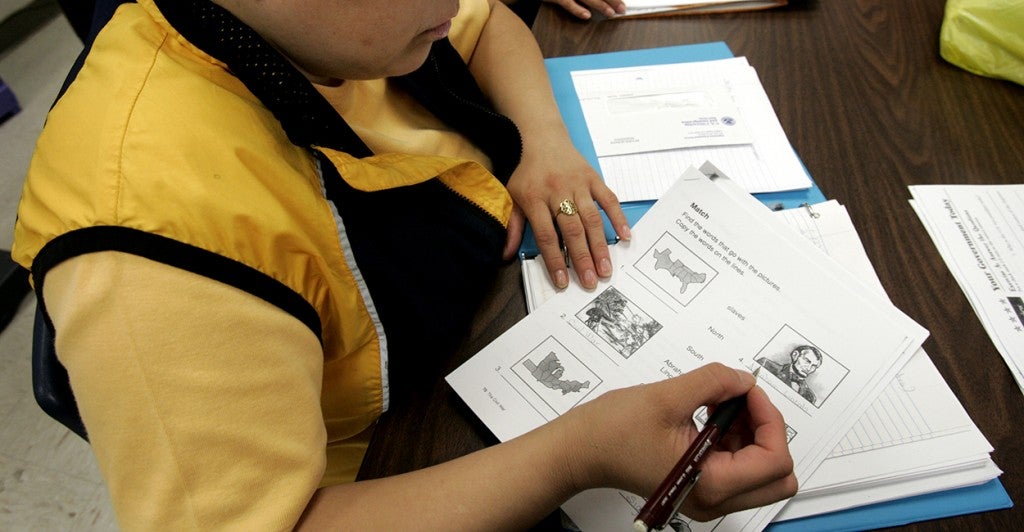Should high school students have to pass the citizenship test?
The Civics Education Initiative, an Arizona-based non-profit group, is pushing for legislation in Arizona, Louisiana, Missouri, New Mexico, North Dakota, Oklahoma, South Carolina, South Dakota and Utah that would require all high school students to pass the same test that immigrants applying for U.S. citizenship must pass. The test includes questions about U.S. history and government and the Constitution.
There’s reason to believe too many Americans aren’t getting enough of a civics education these days.
According to the Annenberg Public Policy Center at the University of Pennsylvania, just one-third of Americans can name all three branches of the federal government. More alarming is the fact that another third can’t name even a single branch.
Only 13 percent of Americans knew that the Constitution was signed in 1787. Only 15 percent were able to correctly identify John Roberts as the chief justice of the Supreme Court. But fear not, people aren’t completely ignorant: Nearly twice as many were able to identify Randy Jackson as an American Idol judge.
Civics education has been placed largely on the backburner in American public schools as the focus of curriculum has shifted more toward science, technology, engineering and math to prepare students for the technology-based economy. STEM education is no doubt important: after, all Americans need to be properly trained to compete in the global economy. But by neglecting civics education, we undermine citizens’ sense of what it means to be an American and weaken the foundations of our society.
Just one-third of Americans can name all three branches of the federal government.
In a constitutional democracy such as ours, we, the people are in charge of ordering our lives and communities as we see fit. As Abraham Lincoln explained, ours is a “government of the people, by the people and for the people.” This means that the health and prosperity of the nation ultimately rests on us, the citizens.
Yes, we often rely on our elected representatives to handle major issues and direct the affairs of the country. But in our system, wise leaders don’t elect themselves. It is up to citizens, exercising their right to self-government, to select the best leaders who will act in accordance with the will of the people and, most importantly, the Constitution. Proper civics education provides us with an understanding of our constitutional system and the principles upon which it is founded so that we can ensure that our leaders faithfully fulfill their duties.
Over the past century, our elected leaders have too often ignored the Constitution and cast aside our founding principles. As a result, the size and scope of the federal government have exploded, the national debt has skyrocketed and our right to self-government has been diminished. Unfortunately, many Americans are ambivalent about the corrosion of our system.
In order to prevent further decline and begin to restore government to its proper role, we need a well-informed citizenry actively engaged in the democratic process. The polls tell us we have a long way to go, but efforts like the Civics Education Initiative are an excellent start.
